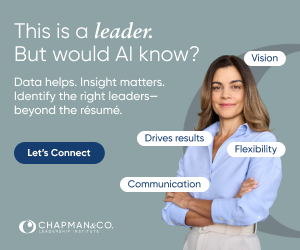Balancing Technology and Human Judgment in Hiring Decisions
Posted on 04-11-2025, Read Time: 6 Min
Share:

Highlights:
- While digital tools enhance efficiency and help standardize assessments, human evaluators remain essential for gauging cultural fit, emotional intelligence, and complex communication cues.
- The best hiring outcomes come from a layered approach—using technology for early screening and objective assessments, followed by human-led evaluations that provide context and nuance.
- Not all tech is created equal. HR professionals should prioritize tools that are valid, reliable, legally defensible, and aligned with role-specific goals—without sacrificing candidate experience.

The Modern Hiring Toolkit
Today's HR professionals utilize a blend of methods to identify and select the right talent. At the foundation, common tools include resume screening, reference checks, and interviews.Assessment tools have become increasingly accessible, ranging from cognitive skill evaluations that measure job-relevant problem-solving and decision-making abilities to validated personality instruments that explore work styles and behavioral tendencies. Depending on the role, HR teams might incorporate job simulations, technical evaluations, writing samples, or portfolio reviews.
For more specialized or high-stakes leadership roles, many organizations partner with consultants who bring expertise in industrial-organizational psychology and behavioral science. These partnerships enhance the selection process through advanced assessment techniques, validated tools, and an objective interpretation of results, which is particularly valuable when internal teams lack specialized training.
The evolution of technology has further expanded hiring toolkits, with applicant tracking systems, video interviewing platforms, and automated screening tools becoming standard in many hiring processes. Yet, what risks do they expose the organization to, and do these tools actually do what they say? These critical questions lead us to consider how we should evaluate hiring technologies.
Evaluating Technology in Hiring
Not all hiring technologies are created equal, nor do they automatically lead to better outcomes. When decisions affect both candidates and business outcomes, the latest innovation isn't always best. Careful evaluation using these essential criteria will help you distinguish truly valuable technologies from those offering more promise than performance:Purpose alignment: The most basic question is often overlooked—is this tool designed for what you want to use it for? Technologies repurposed from other contexts may not transfer successfully to hiring scenarios and have hidden downsides
Validity: Does the assessment measure what it claims to measure, and more importantly, does it actually predict on-the-job performance? Look for tools backed by rigorous validation studies specific to your need, like hiring or development.
Reliability: Consistency matters. A reliable tool should produce similar results when used repeatedly under the same conditions. Unreliable assessments introduce unnecessary variability into your decision-making.
Legal defensibility: In today's regulatory environment, hiring practices must stand up to legal scrutiny. Choose tools that align with legal best practices and don't expose your organization to discrimination claims or other legal vulnerabilities.
Practicality: Even the most sophisticated tool becomes useless if it's too burdensome to implement. Consider the resource requirements, time commitment, and complexity when evaluating new technology.
Candidate experience: Finally, remember that each interaction shapes how potential employees view your organization. Technology that creates frustrating, confusing, or impersonal experiences may drive top talent away regardless of their assessment value.
Where Technology Adds Value
There are certain aspects of the hiring process where technology demonstrably enhances outcomes:Streamlining candidate experiences: Well-designed technology can make application processes more accessible, allowing candidates to showcase their qualifications without unnecessary friction. From mobile-friendly applications to on-demand video interviews, these tools expand reach and remove logistical barriers.
Assessing job-relevant competencies: Validated assessment tools excel at measuring specific skills and aptitudes in standardized ways, for example, the ability to work quickly and accurately with financial data for a controller role or solving complex and practical mechanical problems for a manufacturing leader. They can efficiently screen for baseline qualifications like technical knowledge, cognitive abilities, or language proficiency without irrelevant factors influencing results.
Making hiring processes more efficient: Technology streamlines workflows and automates repetitive tasks, allowing organizations to consider broader candidate pools while focusing human attention where judgment matters most. This efficiency creates capacity for deeper evaluation of promising candidates.
Calibrating team evaluations: Digital platforms can aggregate feedback from multiple interviewers, standardize rating scales, and highlight discrepancies in assessments. This helps minimize individual biases and creates more balanced evaluations across different team members.
The Irreplaceable Human Element
While technology continues to transform the hiring landscape, there remain critical dimensions of candidate evaluation that algorithms and digital tools simply cannot yet replicate. These are the domains where human expertise doesn't just add value, it’s essential. The areas where experienced professionals, such as knowledgeable HR leaders and business psychologists, bring irreplaceable insight includes:Considering culture and team dynamics: Understanding how a candidate will interact within a specific team environment requires nuanced evaluation. Experienced professionals and business psychologists detect subtle social cues and assess organizational fit through skilled questioning in ways algorithms cannot.
Interpreting communication complexity: The complexities of human communication can be misunderstood by AI. Elements like humor, sarcasm, empathy, and emotional intelligence are best evaluated through human interaction. Business psychologists are trained to facilitate interviews that enable them to understand the candidate’s behaviors and emotions.
Contextualizing experiences and skills: Human evaluators excel at recognizing when non-traditional backgrounds offer valuable perspective, when gaps have reasonable explanations, or when specific experiences transfer well to new contexts. Business psychologists can strengthen existing best practices like structured interviews, competency mapping, and assessing future potential here, allowing a non-traditional candidate to shine when they should.
Finding Your Balance of Human & Technology
The most effective hiring strategies integrate both technological efficiency and human insight. Consider these principles when developing your approach:Start with clear objectives: Define what success looks like before selecting tools. Different roles and organizations have different needs, and your process should reflect these specifics.
Layer multiple methods: Use technology for initial screening and to streamline standardized assessments. Then follow with human evaluation for cultural fit and nuanced qualities.
Continuously evaluate: Regularly assess your tools and processes, tracking outcomes to identify what works and what needs refinement. If a tool sounds too good to be true, it probably is.
Build diverse evaluation teams: Human judgment improves when multiple perspectives are included. Ensure your human evaluators represent diverse backgrounds and viewpoints.
Provide proper training: Both technological tools and human judgment improve with proper training. Invest in helping your team understand how to interpret assessment results and recognize their own biases.
Partner with experts: Partner with technology, assessment, and legal experts to keep practices cutting-edge while optimizing decision-making for your organization. Trying to evaluate every option yourself is likely unrealistic.
In Summary
Our goal as consultants is to provide our clients with the tools and information to make decisions that are more effective, reliable, and consistent. Technology and human judgment both play critical roles in achieving this. By understanding how to evaluate hiring tools, when to leverage technology, and where human experience remains essential, you can develop a balanced approach that serves both your organization and your candidates.As the field continues to evolve rapidly, stay current with emerging research and innovations. Partner with experts in relevant technology, psychometric assessment, and legal compliance to ensure your practices remain cutting-edge while enabling the most effective decision-making for your organization.
Author Bio
 |
Peter Hegel, Ph.D., is Senior Consulting Psychologist at Chapman & Co. Leadership Institute. Drawing on his real-world management background and deep psychology expertise, Peter has helped countless organizations identify their brightest talent and meet strategic goals. His consulting sweet spots include talent assessments, executive coaching, and creating effective mentoring programs. A Washington University graduate with dual degrees in Psychology and Anthropology, Peter later earned his Ph.D. from NC State, where his personality research continues to inform his practical approach to organizational challenges. |
 |
Jessica Rusnack, Ph.D., is Principal Consulting Psychologist at Chapman & Co. Leadership Institute. Jessica transforms organizations by applying her unique blend of clinical psychology expertise and leadership experience. She spent 15 years in clinical practice focused on assessments and mentoring before building a successful 15-year corporate consulting career. Today, she helps diverse organizations identify top talent through psychological assessment, executive coaching, team building, and succession planning. A Summa Cum Laude CSU Stanislaus graduate with a Ph.D. from University of Missouri-St. Louis, Jessica is a licensed Missouri psychologist and active in APA's Consulting Psychology division. |
Error: No such template "/CustomCode/topleader/category"!


